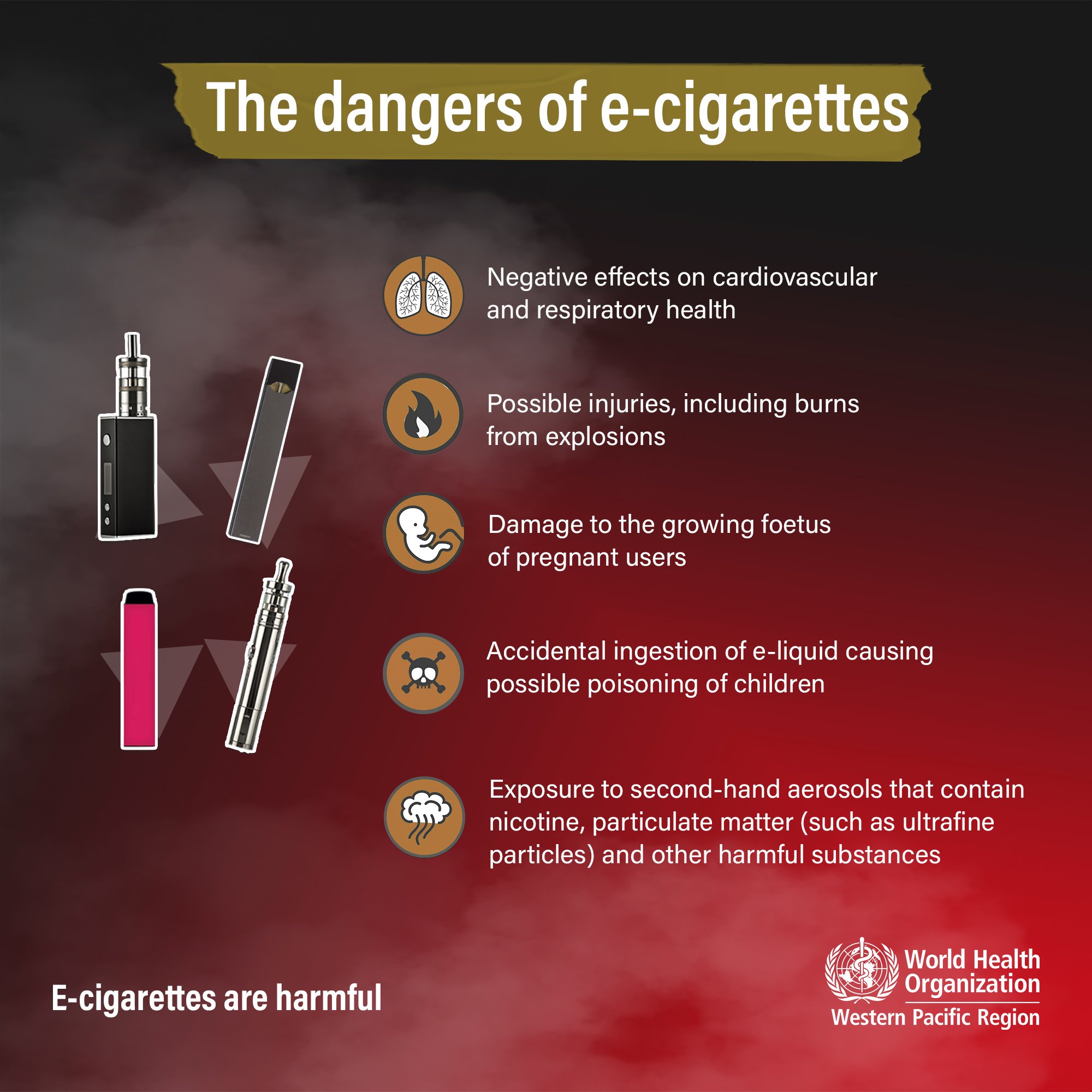Electronic cigarettes (e-cigarettes) are not harmless and expose users to multiple toxic substances, leading to a range of adverse health effects. The aerosol inhaled contains nicotine, flavorings, and various chemicals that can damage the body.
Respiratory System Effects
Inhaling e-cigarette aerosol can cause significant harm to the lungs:

- Lung Damage: Chemicals in e-cigarette vapor, such as acrolein, formaldehyde, and diacetyl (linked to “popcorn lung”), can cause inflammation and damage to lung tissue. This can lead to conditions like chronic bronchitis and may exacerbate asthma.
- EVALI: E-cigarette, or Vaping, product use-Associated Lung Injury (EVALI) is a serious acute respiratory illness that has been linked to vaping, particularly products containing Vitamin E acetate.
- Impaired Lung Defenses: Vaping can impair the lungs’ ability to clear out foreign particles and fight infections, increasing susceptibility to respiratory illnesses.
Cardiovascular Risks
Nicotine, a primary component in most e-cigarettes, has detrimental effects on the cardiovascular system:
- Increased Heart Rate and Blood Pressure: Nicotine stimulates the adrenal glands to release adrenaline, which raises heart rate and blood pressure, putting stress on the heart.
- Arterial Stiffness and Endothelial Dysfunction: Long-term use can contribute to the stiffening of arteries and damage the lining of blood vessels, increasing the risk of atherosclerosis, heart attack, and stroke.
- Other Toxicants: Besides nicotine, other components in the aerosol may contribute to cardiovascular toxicity.
Brain Development and Addiction
Nicotine is highly addictive and particularly harmful to the developing brain:
- Adolescent Brain: The human brain continues to develop until about age 25. Nicotine exposure during adolescence can disrupt the growth of brain circuits that control attention, learning, and susceptibility to addiction.
- Addiction: The high concentrations of nicotine in some e-cigarettes can lead to rapid and strong addiction, making quitting difficult.
- Mood Disorders: Nicotine use has been linked to an increased risk of mood disorders and can worsen symptoms of depression and anxiety.
Other Harmful Effects
- Exposure to Carcinogens: E-cigarette aerosol can contain known carcinogens and toxic chemicals, including heavy metals like nickel, tin, and lead, as well as volatile organic compounds (VOCs).
- Oral Health Problems: Vaping can contribute to gum inflammation, dry mouth, and an increased risk of cavities and other oral health issues.
- Pregnancy Risks: Nicotine exposure during pregnancy is harmful to the developing fetus and can lead to premature birth, low birth weight, and developmental problems.
- Poisoning Risk: E-liquids are toxic if ingested or absorbed through the skin, posing a significant risk to children.
- Device Malfunctions: Defective e-cigarette batteries can cause fires and explosions, leading to serious injuries.
In conclusion, e-cigarettes are not a safe alternative to traditional cigarettes and present numerous health hazards across multiple organ systems. The long-term consequences are still being investigated, but current evidence strongly indicates significant harmful effects.








